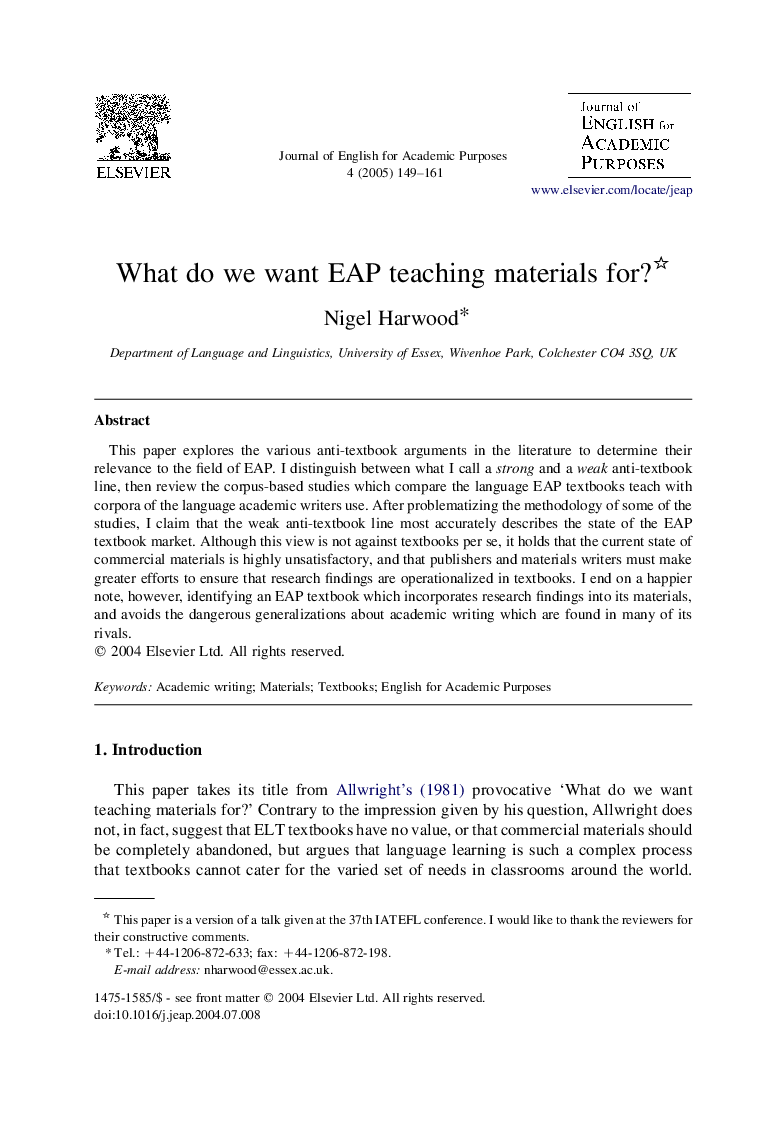| Article ID | Journal | Published Year | Pages | File Type |
|---|---|---|---|---|
| 10314577 | Journal of English for Academic Purposes | 2005 | 13 Pages |
Abstract
This paper explores the various anti-textbook arguments in the literature to determine their relevance to the field of EAP. I distinguish between what I call a strong and a weak anti-textbook line, then review the corpus-based studies which compare the language EAP textbooks teach with corpora of the language academic writers use. After problematizing the methodology of some of the studies, I claim that the weak anti-textbook line most accurately describes the state of the EAP textbook market. Although this view is not against textbooks per se, it holds that the current state of commercial materials is highly unsatisfactory, and that publishers and materials writers must make greater efforts to ensure that research findings are operationalized in textbooks. I end on a happier note, however, identifying an EAP textbook which incorporates research findings into its materials, and avoids the dangerous generalizations about academic writing which are found in many of its rivals.
Related Topics
Social Sciences and Humanities
Arts and Humanities
Language and Linguistics
Authors
Nigel Harwood,
